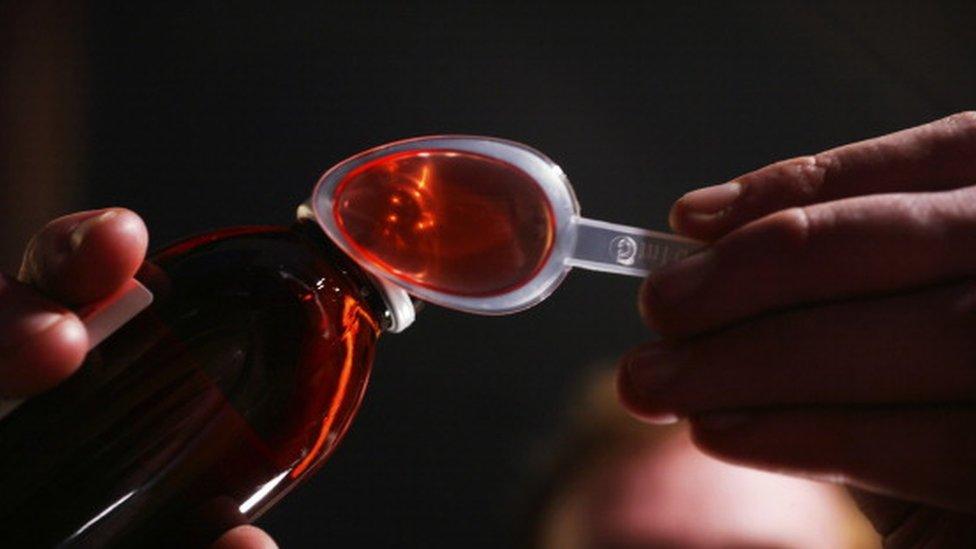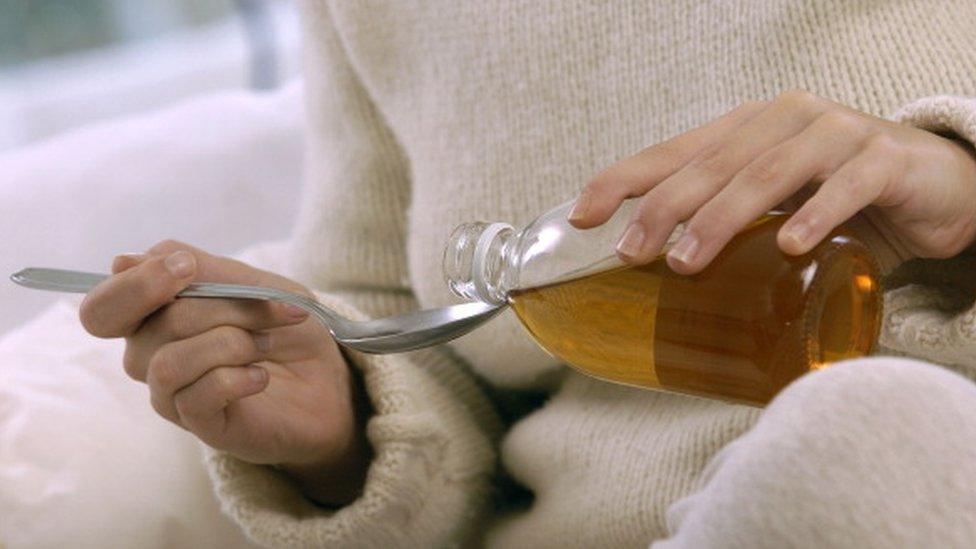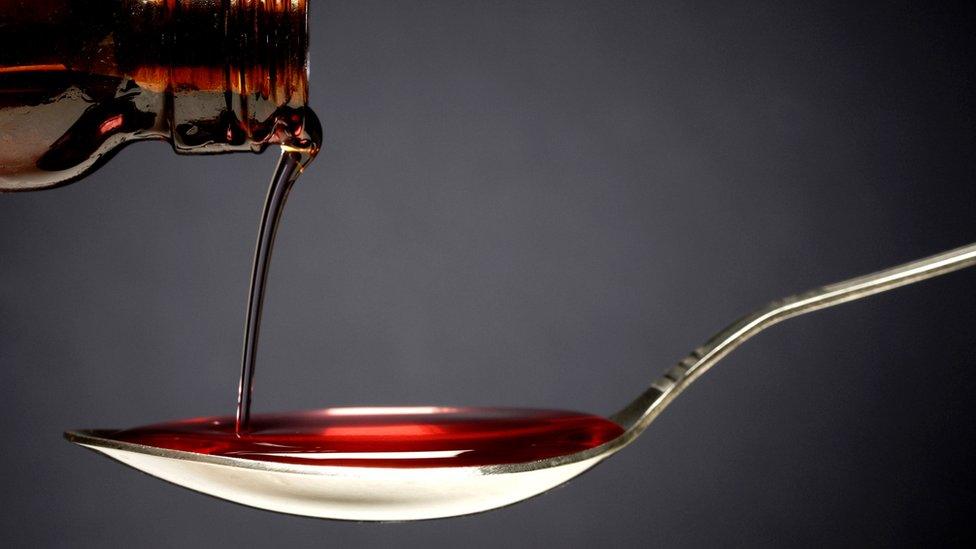Marion biotech: WHO alert against use of Indian cough syrups in Uzbekistan
- Published

WHO said it found unacceptable amounts of contaminants in the cough syrups
The World Health Organization has warned against the use of two Indian cough syrups for children that have been linked to deaths in Uzbekistan.
WHO said the products, manufactured by Marion Biotech, were "substandard" and that the firm had failed to provide guarantees about their safety.
The alert comes weeks after Uzbekistan alleged that 18 children died after consuming a syrup made by the company.
Marion Biotech has denied the latest allegations.
In an emailed response to the BBC, the firm has said that it "does not agree" with the WHO's findings and that it was cooperating with investigations being carried on by the Indian government.
After the deaths were reported in Uzbekistan, India's health ministry suspended production at the company.
This week, the food safety department in the northern state of Uttar Pradesh - where Marion Biotech is based - also suspended the company's production licence.
In the alert issued on Thursday, WHO said that an analysis of the two cough syrups - Ambronol and Dok-1 Max - by the quality control laboratories of Uzbekistan's health ministry found unacceptable amounts of two contaminants - "diethylene glycol and/or ethylene glycol".
Diethylene glycol and ethylene glycol are toxic to humans and could be fatal if consumed.

WHO said it found unacceptable amounts of contaminants in the cough syrups
"Both of these products may have marketing authorizations in other countries in the region. They may also have been distributed, through informal markets, to other countries or regions," the WHO said.
It added that "the substandard products" were "unsafe and their use, especially in children, may result in serious injury or death".
Marion Biotech told the BBC that it had followed "approved processes" while manufacturing the "syrup in question" and that it did not agree with the WHO's findings that "the residue of ethylene glycol was present in the Doc-1 Max Syrup".
However, the response does not mention the firm's stance on allegations made regarding the second cough syrup - Ambronol.
The firm also said that 20,000 bottles of 100 ml each of the Doc-1 Max cough syrup "were supplied to the entire geography of Uzbekistan" but that "fatalities have only been reported in one of the geographical locality of Samarkand".
It added that upon recall of the syrup, the firm had received around 1,500 bottles, indicating that the "balance have been consumed without any side effects".
Further, it alleged that these "facts" indicated that there was "something more to the deaths of the children" rather than "simplistically blaming it on the syrup".
India is known as the "world's pharmacy" as it produces a third of the world's medicines, meeting much of the medical needs of developing countries. The country is also home to some of the fastest-growing pharmaceutical companies.
But the industry has been under increased scrutiny after cough syrups made by Indian companies have been linked to children's deaths in other countries.
In October, the WHO had sounded a similar alert, linking four cough syrups made by another Indian firm to the deaths of 66 children from kidney injuries in The Gambia.
Both the Indian government and the company, Maiden Pharmaceuticals, have denied the allegations.

Read more India stories from the BBC:

Related topics
- Published29 December 2022

- Published17 October 2022